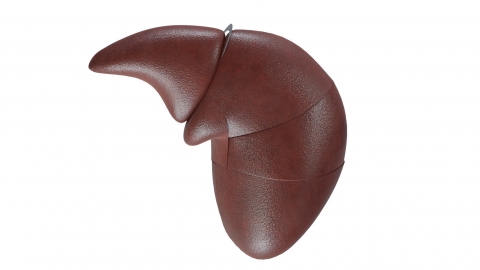What should I do if gallstones recur?
Recurrence of gallstones may be caused by improper diet, irregular作息, chronic cholecystitis, bile stasis, or biliary colic. It can be improved through dietary adjustments, regular作息, medication, and inflammation control. If recurrences are frequent and accompanied by severe abdominal pain or fever, prompt medical attention is necessary.

1. Improper Diet: Regular consumption of high-fat, high-cholesterol foods (such as animal offal and fried foods), or binge eating, can disrupt bile composition, promote stone formation, and trigger recurrence, often accompanied by discomfort in the upper right abdomen. It is recommended to switch to a low-fat, light diet, increase intake of vegetables and fruits, eat smaller meals more frequently, and avoid prolonged fasting.
2. Irregular作息: Long-term熬夜 and insufficient sleep can impair liver metabolism, leading to abnormal bile secretion and excretion, increasing the risk of stone recurrence, possibly accompanied by fatigue and reduced appetite. It is advised to maintain a regular作息, ensure 7–8 hours of sleep per night, avoid excessive fatigue, and establish consistent meal times.
3. Chronic Cholecystitis: Long-standing gallstones can chronically irritate the gallbladder wall, causing recurrent inflammation. This inflammation worsens bile stasis and promotes stone recurrence, with symptoms including dull pain in the upper right abdomen, bloating, and nausea. Patients may take medications such as anti-inflammatory and cholagogue tablets, ursodeoxycholic acid capsules, or cefixime dispersible tablets under medical guidance to relieve symptoms.
4. Bile Stasis: Weakened gallbladder contractile function leads to poor bile drainage. Prolonged stasis can cause crystallization and formation of new stones, resulting in recurrence, possibly accompanied by jaundice and darkened urine. It is recommended to use medications such as ademetionine disulfonate enteric-coated tablets, cefoperazone sodium and sulbactam sodium for injection, or dehydrocholic acid tablets under medical supervision to improve symptoms.
5. Biliary Colic: Recurrent stones blocking the cystic duct can cause intense gallbladder contractions, leading to severe abdominal pain that may radiate to the shoulder and back, along with vomiting. Symptoms can be managed with medications such as atropine sulfate injection, pethidine hydrochloride injection, or racemic hyoscine tablets as prescribed.
Daily care should include adherence to a low-fat diet, avoidance of spicy and irritating foods; regular physical activity to prevent prolonged sitting; maintaining emotional well-being to minimize mood fluctuations; and periodic follow-up examinations of gallbladder health.





